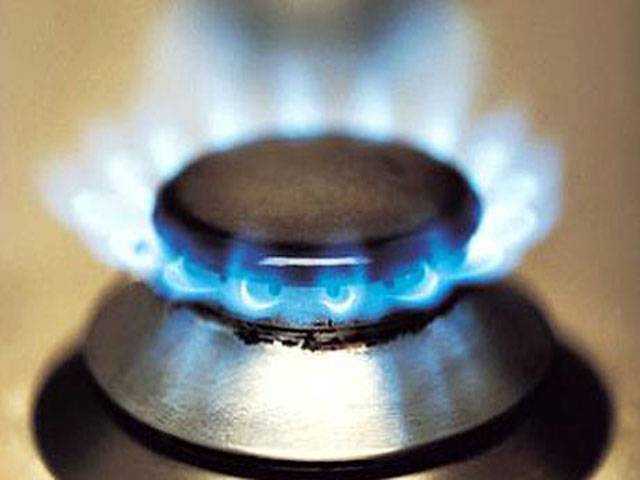ISLAMABAD - With ongoing severe spell of cold across the country, the hours-long unannounced power outages coupled with gas shortages have added to the miseries of already over burdened consumers.
Official sources at power ministry told TheNation that currently the total gas production of the country is around 3.9bcfd against the demand of 6bcfd while total power generation is around 8500MW and the demand stands at 11000MW. The prevailing energy crisis has resulted in increase in the duration of power outages in cities and rural areas of the country by up to six hours a day while low or zero gas pressure has added to the woes of common man.
Amid severe wave of cold, the country is experiencing worst ever energy crisis ostensibly due to the mismanagement on part of the government, while every segment of society is forced to bear the brunt of energy shortage, particularly gas shortage. Ongoing energy crisis has devastated the routine and business life of the country and left the people in extreme distress. Thousands have gone jobless, as business and commercial activities have been minimized due to power outages coupled with gas shortages that resulted in the form of closure of industry and CNG filling stations.
A meeting was held here in the premises of petroleum and natural resources ministry on Tuesday under the chair of petroleum minister Shahid Khaqqan Abbasi to discuss and analyse the prevailing situation of gas shortages. Senior officials of the ministry and gas utility were present on the occasion and briefed the meeting about the demand and shortfall of gas in the region. They told the meeting that gas shortfall in Sui Northern Gas Pipeline Limited (SNGPL) has surged to one billion and forty crore cubic feet due to technical reasons.
At present around 40 per cent domestic gas consumers are baring heavy brunt of gas shortage as they are without gas while rest of the gas consumers are facing low gas pressure and to some extent no gas for cooking or heating purposes.
They also told the meeting that gas demand in twin cities-Rawalpindi & Islamabad- has surged to 32 crore cubic feet per day while gas supply stands at only 24 crore cubic feet and increase in gas supply cannot be made for next one month.
Domestic consumers are not getting gas as per demand only due to technical faults in the SNGPL system and also because the population settlements are situated at a distance from the main pipeline, one of the SNGPL officials said, adding that no significant investment had been made to uplift the entire system of SNGPL.
And, 40 per cent domestic gas consumers are without gas.
Sources told this scribe that total gas demand in SNGPL region is around three billion, fourteen crore and twenty lakh cubic feet of gas per day while SNGPL is supplying only one billion, seventy-four crore and twenty lakh cubic feet per day. Natural gas supply to Lahore region is 278mcfd, Multan region 158mcfd, Bahwalpur region 247mcfd, Faisalabad region 166mcfd, Gujrat region 193mcfd, Sargodha region 41mcfd, Sheikhopura region 106mcfd, while Sahiwal, Peshawar and Abbottabad region is getting 60mcfd of natural gas. Similarly, 63mcfd is being supplied to Engro Fertilizer from the Bahwalpur region.
Reportedly, both gas utilities - Sui Northern Gas Pipeline Limited & Sui Southern Gas Company Limited - have set aside the gas load management plan. The SNGPL and SSGC are facing around 40 per cent shortage in their supply and demand network.
There is low or no gas supply in houses for cooking or heating purposes, and domestic consumers have to rely on alternative expensive fuels likeLPG, kerosene oil, coal, wood etc to keep their stoves working for cooking the food and heating as well. In addition to this, commuters are also facing hike in fares of public transport due to the closure of CNG stations, as transporters are charging high fares, which is also resulting in price hike of basic commodities.
Ironically, reduced gas and power supply have badly affected the routine of school children and other employees. Study hours of students have been badly affected, as they cannot study at night. Similarly, large and small-scale businesses in the country are under severe stress ostensibly due to above-mentioned reasons.
Monday, August 18, 2025
40pc domestic consumers without gas

PFF delegation visits AFC Headquarters to discuss Football Development in Pakistan
5:21 PM | August 18, 2025
Rawal Dam spillways open after water level reaches 1,751 feet
5:05 PM | August 18, 2025
Rupee gains 05 paisa against US Dollar
4:56 PM | August 18, 2025
China finish record haul in Chengdu with breaking and skating golds
4:50 PM | August 18, 2025
KP floods death toll rises to 325, rescue teams on high alert
4:48 PM | August 18, 2025
-
'No talk of President Zardari resigning or COAS seeking Presidency': Naqvi rejects rumours
-
'No talk of President Zardari resigning or COAS seeking Presidency': Naqvi rejects rumours
-
Pilgrims perform final Hajj ritual as Eidul Azha begins amid tight security and heat measures
-
Hajj 2025 sermon: Imam-e-Kaaba prays for Palestine, urges unity and compassion
-
Nearly 2 million Muslim pilgrims ascend Mt Arafat for climax of Hajj pilgrimage
-
How the US repeatedly failed to deliver aid to the people of Gaza
Drowning in Denial
August 17, 2025
A Fragile Peace
August 17, 2025
A Regional Opening
August 17, 2025
Broadening Horizons
August 16, 2025
Code of Care
August 16, 2025
Olympics 2028
August 17, 2025
Alarming Rise in Youth Unemployment
August 17, 2025
Pakistan Turns 78
August 17, 2025
Reviving Night Cricket
August 17, 2025
Unpaid Internships — A Barrier to Talent
August 16, 2025
ePaper - Nawaiwaqt
Nawaiwaqt Group | Copyright © 2025







